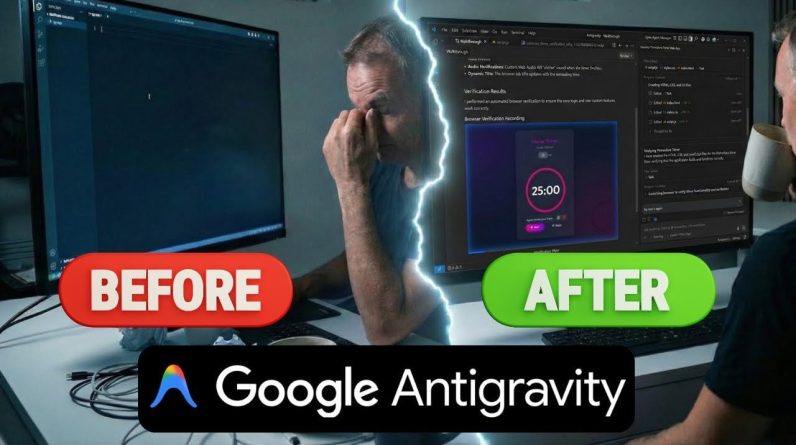AI actress Tilly Norwood
Particle6
Social media can be an excellent gauge for how the general populace feels about a given topic. One recent example? When a demo reel of AI actress Tilly Norwood started circulating recently on Instagram and other apps, and then Eline van der Velden–the Founder and CEO of AI media firm Particle6 who is behind the AI actress–posted about it on her Instagram feed, people went a little crazy.
Tell me what you really think was my first reaction scrolling through the comments, including some that said Norwood will take real jobs away from working actors.
The general consensus with AI these days is that it’s impacting the workforce too much and causing undo stress. One survey found that 71% of Americans feel AI is going to take real jobs away from humans. A Pew Research report from last year found that over half of those surveyed feel there will be fewer jobs available as AI starts to dominate more and more.
Besides the AI actress Tilly Norwood (who has technically not appeared in a movie yet), there’s another startling example of this. A country “artist” called Breaking Rust is actually an AI but recently released a top Billboard hit. The reaction was swift and harsh. Some of the comments on YouTube noted how we might as well give in to Skynet from the Terminator movies. Others mentioned how the hit song is soulless.
Users did not hold back about this AI content, so I thought it was only fitting to ask Van der Velden for her views on the kerfuffle. “There were lots of positive responses but also negatives. To some, AI is scary–most people know very little about it at present–and we’d all worry, of course, if we thought it was taking our job,” she says, noting her surprise over the reaction on social media.
Her team had already soft-launched the AI actress in the UK but it was when Hollywood actors started to comment on Norwood that the topic went viral and became a trending topic on many social media feeds.
“When you throw into the mix that Tilly looks so real, a premium character compared to any that have gone before (since she wasn’t the first), I think people were surprised at how good characters could look with the tech now available and the creative input required,” she says. Indeed, there was something about this particular AI bot.
Is there a place for Tilly Norwood?
Van der Velden recently spoke at the Web Summit conference about how AI content has a place alongside human-generated videos. I watched the entire session and I must admit I was beginning to see the logic of how AI is not all that different from CGI or even animated movies.
Recently, I experimented with Google Gemini to create videos based on simple prompts. They are useful at envisioning how a product might look or what happens when you supply a car photo and turn it into a video, showing the vehicle driving up a mountain. My issue isn’t the computer-generated videos, which have been around forever and can be useful. Instead, it’s that an AI actor like Tilly Norwood or a musical artist like Breaking Rust are presented as human alternatives.
Tilly seems real. The bot has a demo reel and talks to the camera. During the Web Summit demo, Norwood mentioned Van der Velden in an off-handed way.
The comment that stuck with me when I reviewed the social media posts was that an AI actress does not have a soul and never will, so I asked Van der Velden about her view on that.
“AI is a tool, operated by humans–and we have souls,” she explained. “Tilly Norwood has a team of 15 people behind her, led by me, and took more than six months to create, with lots of different creative inputs and prompts–and we are currently working behind the scenes on creating her brain and building her whole persona, using ethical guardrails.”
She continued: “I think it’s fair to say that AI as a technology doesn’t have a soul as such, but the best of its creative outputs certainly could have something akin to a soul.”
Does Tilly Norwood really have a soul?
That leaves a burning question: If the creators behind a piece of technology instill their lifeblood into the project, pouring their “heart and soul” into the creation, is there a case to be made that an AI entity does have rights and privileges or can have meaning and purpose? In many ways, I’ve just described the plot to about 100 science fiction movies.
I would say this issue is much more cut and dried: the answer is no. If we’re going to say an AI actress has something akin to a soul, then we’ll have to apply that logic to songs and paintings, to the landscaping in my yard, and maybe even to this article.
There’s a part of me that wonders if this issue will only grow in complexity.
I do agree with Van der Velden that Tilly Norwood raised the stakes. The AI actress looks far more convincing as a human alternative than other recent AI creations. If anything, this has created an opportunity to figure out a consensus on what to do about AI content before the videos become even more commonplace.



